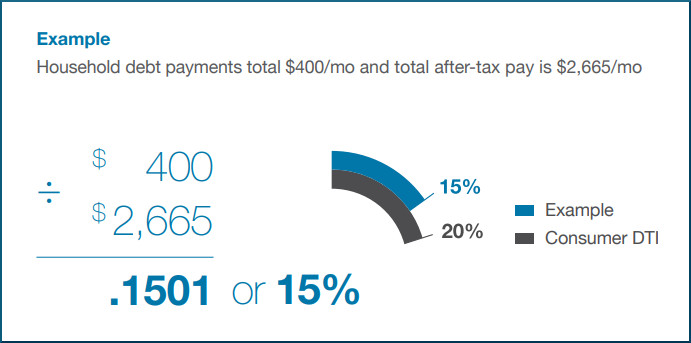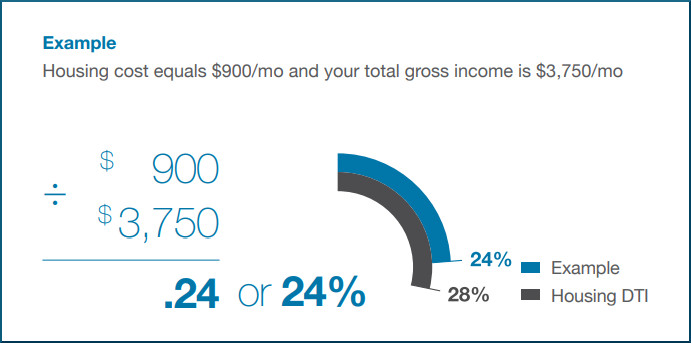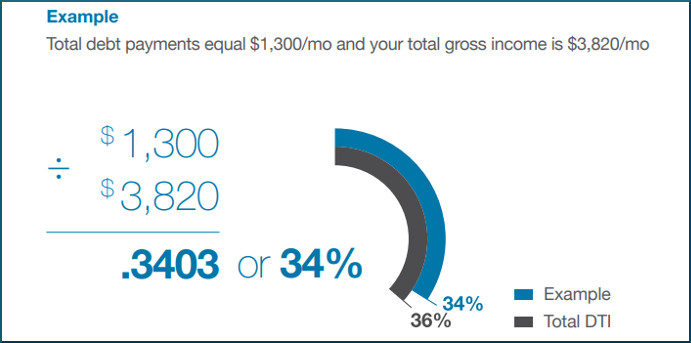The 3 Faces of Debt
- The (Sometimes) Good: Many responsible people use debt to acquire big-ticket items they need immediately. The vast majority of the population couldn't afford a college education, vehicle, or home without financing.
- The Bad: Credit cards or other forms of borrowing can make it easy to forget you're paying with real money. Don't take on debt without giving it some serious thought.
- The Ugly: When payments total more than you can afford, and there's no end in sight, debt has spiraled out of control.


The 3 Faces of Debt
- The (Sometimes) Good: Many responsible people use debt to acquire big-ticket items they need immediately. The vast majority of the population couldn't afford a college education, vehicle, or home without financing.
- The Bad: Credit cards or other forms of borrowing can make it easy to forget you're paying with real money. Don't take on debt without giving it some serious thought.
- The Ugly: When payments total more than you can afford, and there's no end in sight, debt has spiraled out of control.

Managing Debt

You Can Get Your Family Out of Debt.
The flashing red lights of indebtedness appear long before creditors start leaving intimidating voice messages, flooding your inbox with emails, and swamping you with collection notices. It takes personal effort and discipline to get your finances under control if your family becomes overextended. Here are some tips military spouses like you can employ to reverse the chaos and get your family on firm financial ground:
- Stop the Bleeding. To get out of debt, you’ve got to stop adding to it. Try going on a cash-only diet and try not to let a single dollar go to penalties or fees due to missed or late payments.
- Build a Safety Net. Stuff happens! If you don’t have cash in the bank to handle it when it does, you’ll end up going deeper in debt to pay for it. Creating an emergency fund — even if it's just a small one — can be a big help.
- Confront Your Debt. It's important to know what you owe, know how you got into debt in the first place, and know how to minimize your costs. Ask your lenders to lower your rates or consider a consolidation loan or balance transfer. Just be careful with this and make sure you don't run up the original debts again.
- Know Your Cash Flow. Understand what comes in, what goes out, and how you can free up money to put toward your debt.
- Adjust Your Cash Flow. Once you've figured out where to cut, make those budget adjustments to free up that debt-destroying extra cash.
- Pay It Down. One technique is to pay the minimums on all your debts except for the one in which you'll pay extra each month. To save on interest costs, attack the highest-rate debts first. To get a bigger emotional boost, attack the smallest balances first. The key is to have a plan and work it!



Calculate Your Debt to Income Ratio
As a military spouse, one way to ensure your household stays financially healthy is to calculate and monitor your debt to income (DTI) ratios. Simply stated, your DTI is based on how much you owe compared to how much your family earns each month. So, grab a calculator. What follows may change your life.
- Calculate Your Consumer DTI: First, add up your total minimum monthly debt payments — credit cards, student loans, etc. Do not include your mortgage payment or rent in this calculation. That comes later. Next, determine your monthly net income (your pay after taxes). Finally, divide your monthly debt payments by your after-tax monthly income. Then move the decimal two places to the right. The final number is the percentage of your income devoted to consumer debt. Financial experts recommend keeping your consumer DTI below 20%.

- Calculate Your Housing DTI: First, calculate your total housing payment each month. Include such things as rent, mortgage, condo fees, etc. Next, divide this number by your total monthly gross income, i.e. before deductions. It's best to keep your monthly housing obligations below 28%.

- Finally, Calculate Your Total DTI: From the previous calculations, add your total minimum monthly debt payments and your housing payments. Next, divide this total by your monthly gross income (before deductions). It's best to keep your total DTI below 36% of your gross pay.


WARNING! Avoid Payday Loans.
Payday loans often carry high interest rates, unaffordable repayment terms and coercive collection tactics. The penalties for extending loan repayment can be severe and overwhelming. Obtaining a payday loan is relatively easy. However, they are so burdensome that the Department of Defense (DoD) leadership has identified them as a threat to military readiness.
Obtaining a payday loan is relatively easy. However, they are so burdensome that the Department of Defense (DoD) leadership has identified them as a threat to military readiness.
A payday loan may appear to be a short-term solution to a temporary cash flow problem. In reality, it is a high-interest, high-fee loan that can quickly create long-term debt.
Payday loans generally range from $100 to $1,000 depending on state legal maximums. They are repaid out of your next paycheck (usually within a two-week period). Problems develop when you do not repay the payday loan from your next paycheck.
Consider these alternatives to payday loans:
- Talk to a counselor at your Military and Family Readiness support center and/or Military OneSource.
- Consult your military installation for financial counseling and information on zero-interest emergency loans. Ask about financial institutions that offer lower interest loans.
- Research interest rates on loans offered by your financial institution, which can be more competitive.
- Consider overdraft protection for your bank account.
MilLife Milestones
Watch








Dig Deeper



Managing Debt

You Can Get Your Family Out of Debt.
The flashing red lights of indebtedness appear long before creditors start leaving intimidating voice messages, flooding your inbox with emails, and swamping you with collection notices. It takes personal effort and discipline to get your finances under control if your family becomes overextended. Here are some tips military spouses like you can employ to reverse the chaos and get your family on firm financial ground:
- Stop the Bleeding. To get out of debt, you’ve got to stop adding to it. Try going on a cash-only diet and try not to let a single dollar go to penalties or fees due to missed or late payments.
- Build a Safety Net. Stuff happens! If you don’t have cash in the bank to handle it when it does, you’ll end up going deeper in debt to pay for it. Creating an emergency fund — even if it's just a small one — can be a big help.
- Confront Your Debt. It's important to know what you owe, know how you got into debt in the first place, and know how to minimize your costs. Ask your lenders to lower your rates or consider a consolidation loan or balance transfer. Just be careful with this and make sure you don't run up the original debts again.
- Know Your Cash Flow. Understand what comes in, what goes out, and how you can free up money to put toward your debt.
- Adjust Your Cash Flow. Once you've figured out where to cut, make those budget adjustments to free up that debt-destroying extra cash.
- Pay It Down. One technique is to pay the minimums on all your debts except for the one in which you'll pay extra each month. To save on interest costs, attack the highest-rate debts first. To get a bigger emotional boost, attack the smallest balances first. The key is to have a plan and work it!



Calculate Your Debt to Income Ratio
As a military spouse, one way to ensure your household stays financially healthy is to calculate and monitor your debt to income (DTI) ratios. Simply stated, your DTI is based on how much you owe compared to how much your family earns each month. So, grab a calculator. What follows may change your life.
- Calculate Your Consumer DTI: First, add up your total minimum monthly debt payments — credit cards, student loans, etc. Do not include your mortgage payment or rent in this calculation. That comes later. Next, determine your monthly net income (your pay after taxes). Finally, divide your monthly debt payments by your after-tax monthly income. Then move the decimal two places to the right. The final number is the percentage of your income devoted to consumer debt. Financial experts recommend keeping your consumer DTI below 20%.

- Calculate Your Housing DTI: First, calculate your total housing payment each month. Include such things as rent, mortgage, condo fees, etc. Next, divide this number by your total monthly gross income, i.e. before deductions. It's best to keep your monthly housing obligations below 28%.

- Finally, Calculate Your Total DTI: From the previous calculations, add your total minimum monthly debt payments and your housing payments. Next, divide this total by your monthly gross income (before deductions). It's best to keep your total DTI below 36% of your gross pay.


WARNING! Avoid Payday Loans.
Payday loans often carry high interest rates, unaffordable repayment terms and coercive collection tactics. The penalties for extending loan repayment can be severe and overwhelming. Obtaining a payday loan is relatively easy. However, they are so burdensome that the Department of Defense (DoD) leadership has identified them as a threat to military readiness.
Obtaining a payday loan is relatively easy. However, they are so burdensome that the Department of Defense (DoD) leadership has identified them as a threat to military readiness.
A payday loan may appear to be a short-term solution to a temporary cash flow problem. In reality, it is a high-interest, high-fee loan that can quickly create long-term debt.
Payday loans generally range from $100 to $1,000 depending on state legal maximums. They are repaid out of your next paycheck (usually within a two-week period). Problems develop when you do not repay the payday loan from your next paycheck.
Consider these alternatives to payday loans:
- Talk to a counselor at your Military and Family Readiness support center and/or Military OneSource.
- Consult your military installation for financial counseling and information on zero-interest emergency loans. Ask about financial institutions that offer lower interest loans.
- Research interest rates on loans offered by your financial institution, which can be more competitive.
- Consider overdraft protection for your bank account.
MilLife Milestones
Watch








Dig Deeper


Recent Blogs
Showing Appreciation with Top Resources for MilSpouses
As MilSpouses, we are often asked to shoulder a big load of responsibility. When partners deploy or work long hours, managing career and home responsibilities — especially finances — can fall on us. May 10 is Military Spouse Appreciation Day, and we pause to honor your unwavering support, strength and resiliency in all you do…
Read MoreHow to Set Your Kids Up for Financial Success
During Month of the Military Child, we pause to recognize the sacrifices and highlight the resiliency of military children. As we celebrate their unique experiences, take a moment to consider how their exposure to big life events, like a PCS, impacts their understanding of financial well-being. The money lessons we teach our children while they’re…
Read MoreStay Financially Fit for Summer Fun
Stay Financially Fit for Summer Fun It’s March, the time of year I start dreaming about warm beaches, longer days and vacation travel. I know I need to plan now for that getaway and other things summer brings like camps for kids, possible vacations and maybe even a PCS. Here are some planning resources that…
Read More5 Money Myths to Avoid This Year
There is a lot of financial advice out there that can help you build wealth and reach your financial goals. There’s also plenty of misinformation that can set you back. This month, I want to highlight five common money myths to avoid in the new year, as well as good advice you can take to…
Read MoreHow to Maximize Retirement Savings
If someone offered you free money, would you take it? Of course you would! If your service member has a Thrift Savings Plan account or you have a 401(k) plan through your employer, you may qualify for “matching contributions” — money that the government or your employer kicks in when you contribute to your retirement…
Read MoreUpping Your Financial Fitness Can Improve Your Health
Improving financial fitness is more than a money matter — it can also help reduce the stressors that can negatively impact your physical and mental health. Research links financial stress to health conditions like high blood pressure, migraines, anxiety, sleeplessness, and depression. Money can’t buy happiness, but being in control of your finances goes a…
Read MoreCarve Out Time for Financial Planning
October is known for pumpkin spice lattes, changing leaves and sweater weather. It’s also Financial Planning Month — a perfect opportunity to take a holistic look at your money matters. So, before you start carving pumpkins this month, carve out time in your schedule to review your finances. Here’s a checklist to help you get…
Read MoreA Recipe to Protect Your Holiday Budget
You wouldn’t prepare your holiday meals without your favorite recipes, so start this season with a savings plan. Think of it as your very own recipe for financial success. It may seem early to be talking about the holidays, but as a mother and a CERTIFIED FINANCIAL PLANNER™ professional, the best tip I can offer…
Read More









